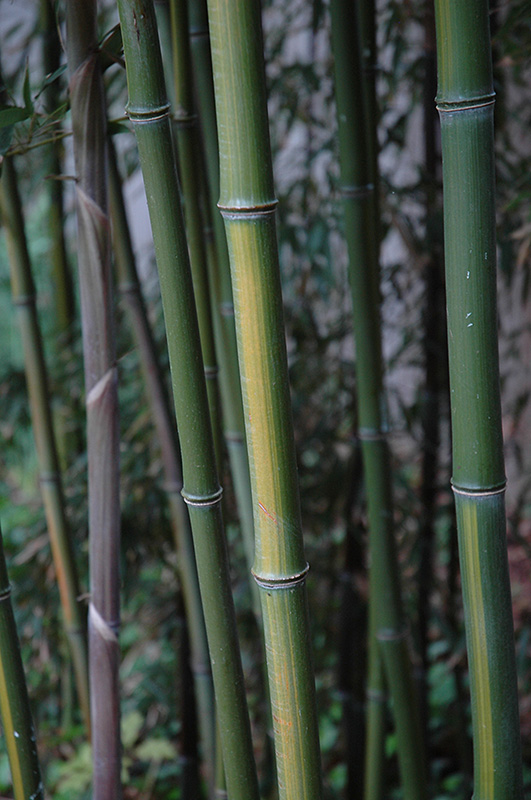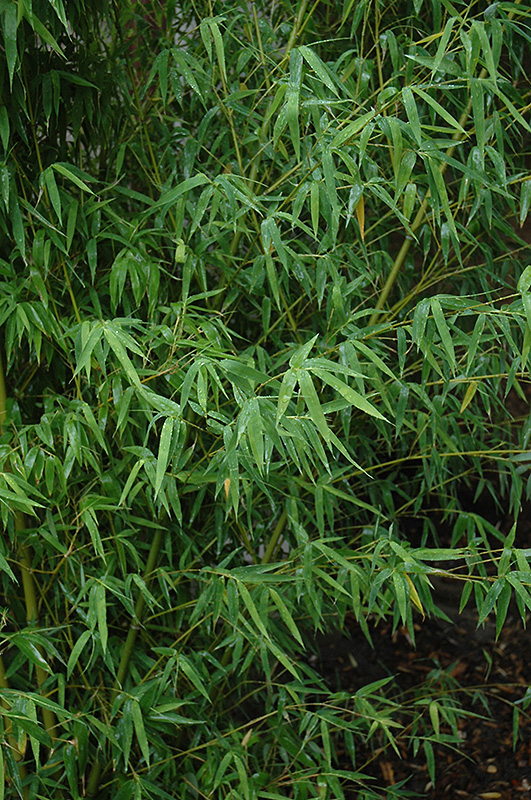>> Home
Yellow Grove Bamboo
Phyllostachys aureosulcata
Height: 8 feet
Spread: 24 inches
Sunlight:
![]()
![]()
![]()
Hardiness Zone: 4
Description:
This hardy bamboo has rigidly upright canes that are green with a bright yellow stripe, the occasional cane with a zig zag kink; an excellent rigid screen, fundamental in Japanese gardens
Ornamental Features
Yellow Grove Bamboo is primarily valued in the landscape or garden for its pronouncedly upright and towering form. Its pointy leaves remain green in color with prominent yellow stripes throughout the season. The green stems are very colorful and add to the overall interest of the plant.
Landscape Attributes
Yellow Grove Bamboo is an herbaceous perennial with a rigidly upright and towering form. Its relatively fine texture sets it apart from other garden plants with less refined foliage.
This is a high maintenance plant that will require regular care and upkeep, and is best cleaned up in early spring before it resumes active growth for the season. Gardeners should be aware of the following characteristic(s) that may warrant special consideration;
- Spreading
Yellow Grove Bamboo is recommended for the following landscape applications;
- Mass Planting
- Hedges/Screening
- General Garden Use
- Groundcover
- Naturalizing And Woodland Gardens
Planting & Growing
Yellow Grove Bamboo will grow to be about 8 feet tall at maturity, with a spread of 24 inches. It tends to be leggy, with a typical clearance of 2 feet from the ground, and should be underplanted with lower-growing perennials. It grows at a fast rate, and under ideal conditions can be expected to live for approximately 20 years. As an herbaceous perennial, this plant will usually die back to the crown each winter, and will regrow from the base each spring. Be careful not to disturb the crown in late winter when it may not be readily seen!
This plant performs well in both full sun and full shade. It prefers to grow in average to moist conditions, and shouldn't be allowed to dry out. It may require supplemental watering during periods of drought or extended heat. It is not particular as to soil type or pH. It is somewhat tolerant of urban pollution. This species is not originally from North America. It can be propagated by division.

